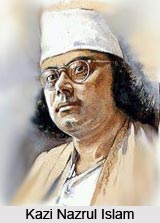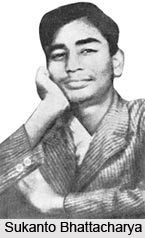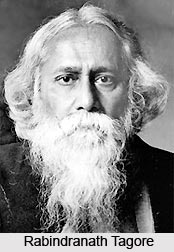 Indian literature pertains to a vast and almost incomprehensible body of artistic works by the conscious mind or eye. India, with its stupendously per-historic past and culturally rich times, does contain its prestigious share of historical evolution against the backdrop of civilisation in the map of world history. As such, the factor that literature in India must have existed since such ancient times is not an aspect that can be overlooked. The nation could never have come to such matured times, had it not been for literary excellences that were produced since pre-Christian era, then precisely in the oral format. With time however, the Indian man was introduced to the concept of writing down upon paper, after which he had begun to dedicate volumes of pages towards penning down immortal pieces for the generations to arrive. And since the very first commencing of writing down literature, the domain of bifurcation into various artistic wonders of fiction, didacticism, verse or drama had evolved. However, these were the ones, which would later culminate into the theme of `genres` in Indian literature, further bifurcating amongst themselves. Keeping in mind the very basics of these kinds in literature, Indian writers have additionally likened themselves to pen down in distinctive genres for facilitating Indian literature, intensely going by the flow of the age.
Indian literature pertains to a vast and almost incomprehensible body of artistic works by the conscious mind or eye. India, with its stupendously per-historic past and culturally rich times, does contain its prestigious share of historical evolution against the backdrop of civilisation in the map of world history. As such, the factor that literature in India must have existed since such ancient times is not an aspect that can be overlooked. The nation could never have come to such matured times, had it not been for literary excellences that were produced since pre-Christian era, then precisely in the oral format. With time however, the Indian man was introduced to the concept of writing down upon paper, after which he had begun to dedicate volumes of pages towards penning down immortal pieces for the generations to arrive. And since the very first commencing of writing down literature, the domain of bifurcation into various artistic wonders of fiction, didacticism, verse or drama had evolved. However, these were the ones, which would later culminate into the theme of `genres` in Indian literature, further bifurcating amongst themselves. Keeping in mind the very basics of these kinds in literature, Indian writers have additionally likened themselves to pen down in distinctive genres for facilitating Indian literature, intensely going by the flow of the age.
Genres In Ancient Indian literature
The subtle yet very much distinctive form in Indian literature, pertaining to its generic time period, can very much be comprehended by the gradual evolution into wondrous aspects. For instance, it can very much be stated that genres of Indian literature from the modern period, stands in gross difference from any genre of medieval Indian literature. The ancient Indian literature was one that was dominated by Hinduism and its umpteen branching towards religious or spiritual realism as opposed to fantastical writings. Sanskritic literary influence was so profound upon the Indian subcontinent that from this itself had branched out several genres of the then Indian literature, which was to give rise to Pali and Prakrit body of literatures, basically under Buddhism and Gautama Buddha`s much adherence to Pali. As such, the ancient age was a cultural and ethical as well as ethnic diversification of literary status.
Genres In medieval Indian literature
The medieval witnessed the tremendous fall of Hindu artistic perfection into almost oblivion, the coming of age of Urdu literature, all of them coming about due to the overshadowing presence of Muslim rulers, after series of Islamic invasions from Persia, Arab and Turkey. The genres in Indian literature that were very much laid too accentuation, was given a backseat, with various foreign and new-to-India elements being given impetus, gradually bearing the badge of acceptance. Urdu literature under the reign of various Muslim rulers had witnessed a steady flourishing in the darbaars and regal courts, with very first traces being given to the fairer sex, also at times with equal power. As such, topics like feminism in Indian literature although not in a very structured way began to be incorporated with smoothened ease and élan. It was the time when every writer sat together with hair-splitting discussions taking place for and against the previous format of Indian writing, as opposed to the Delhi Sultanate period. However, medieval India was also that very period which was to witness gradually the coming in of the European via sea trading routes as well as the arrival of Chinese erudite visits through the Silk Route. Genres in Indian literature were never to remain the same again after the massive fanfare of Mughal Empire from the early 16th century. The Mughal dynasties were the ones, who were the literal litterateurs of merit, with mysterious holds in every possible arm. The later period under Mughal supremacy was although overshadowed by the advent of British sails in to Indian ports, wiping out Indian system of ruling and ushering in the era of Raj, under colonial domination.
 Genres In British Indian literature
Genres In British Indian literature
It was precisely during this British Empire that genres in Indian literature began to be formatted in a rather unusual and infrequently treaded path, with English language capturing the writers` as well as the readers` imagination. The overwhelming response of advancement in the regional literary phases, had also begun to bloom towards proliferation, with indigenous artistic wonders also being recognised. However, the Independence Movement and its umpteen battle cries and the contrasting theorem of non-violence, did impress upon deeply on every sort of native life, touching lives and making very many of the young or old populace a fanatic and dedicated literary man. As such, genres of literature from Indian oppressed class came to light over and over again, giving birth to fiery brand of nationalism, which again was not free form its criticisms and bitings. The fact that India was so successfully colonised was made to come to cognisance under regional wonders of Rabindranath Tagore and his essays or songs, or the poems of Kazi Nazrul Islam or Sukanto Bhattacharya, the `Bidrohi Kobi` (revolutionary poet). Colonial Indian literature was literally bursting out with the deep impact upon every Indian common consciousness, the subaltern to the most classically high societal man. As politics was thus seeping in within the gradual vision of modernism in India, genres in Indian literature like Marxism was also beginning to influence and make its sway upon the `angry young Indian`. Indeed, Marxism in Indian literature is one aspect that cannot be ignored, with all possible languages of Bengali, Hindi, Kannada, Tamil or Kashmiri literature informing the country to stand against British oppression.
Genres In post Colonial and modern Indian literature
India had turned Independent in the wake of the middle of a struggling 1947 and this very sudden and gushing change of governmental and administrative policies was sure to create its ill impacts upon the newly renamed `Indian citizens`. The Partition of India, the consequent `frozen period` of Indian economy made itself very much perceivable in Indian literatures - a country which was almost thrust into native naïve and almost-alien systems after solid 200 years of colonial ruling. This called for reasons enough for genres in Indian literature to become apparent by themselves, a nation plunged into the era of post-colonialism sickness to end, with only sporadic writers and authors taking upon their shoulders the task to be conscious of social norms. Postcolonial Indian literature also gave birth to the Indian diaspora, with clusters failing to identify themselves with the native mode of administration, migrating to the land of once `white` masters, looking down upon Indians as `slaves`. Genres of unnaturalness and unimaginable wonders began to crop up every other day in literature from India, with the now emerging tribal literary communities voicing their outcry of protests of helplessness and angst. The postcolonial generation always has perhaps suffered in a void of dichotomy, with two of the most extremities pulling at each other hard for want of importance and lack of it. And this perhaps is most visible in the rather dark genres in Indian literature, with English predominating above every other regional language.
 Indian English literature has best brought out the pathos and ethos of quintessential Indian literature that was begun during the once-gone Vedic Period. And this very genre of post-colonial genre in Indian English or regional literature, had also given birth to a overwhelming reaction of modernism in Indian literature. Modernism however is not confined to a constricted sense of being omnipresent in the 20th or 21st centuries only. It also does not define that Indian literature with its touch of modernism is only narrowed down to English authors only. Indian literature of ancient times was also very much adhered and akin to being modernistic in their approach, with Tagore being referred to a man `much ahead of his times`.
Indian English literature has best brought out the pathos and ethos of quintessential Indian literature that was begun during the once-gone Vedic Period. And this very genre of post-colonial genre in Indian English or regional literature, had also given birth to a overwhelming reaction of modernism in Indian literature. Modernism however is not confined to a constricted sense of being omnipresent in the 20th or 21st centuries only. It also does not define that Indian literature with its touch of modernism is only narrowed down to English authors only. Indian literature of ancient times was also very much adhered and akin to being modernistic in their approach, with Tagore being referred to a man `much ahead of his times`.
Genres In contemporary Indian literature
Genres of literature in India definitely have changed with the metamorphosing era, what with the 21st century remaining host to pathbreaking and heart-rending incidents, forever marking the era of world history. As such the silhouette of darkness and obscurity is very much apparent for the troubled NRI (Non resident Indian) or an Indian citizen residing within the boundaries of the country itself. Genres like Surrealism in Indian literature, Existentialism in Indian literature or even, Post-Modernism in Indian literature, today is no more an absolutely alien subject that can a reader can identify himself with.
However, post-modernism in the present-day genres in Indian literature is one subject that is not that much nurtured, still having a long way to go, just like any other genre that were garnered in historical times. Dealing with a futuristic topic like post-modernism, any writer does deserve the liberty to garner and harness knowledge within his/her mind. The vast and swift changes in the current Indian scenario, however, do not make any society-bound author to wait for too much catastrophe to happen. As an apparent consequence, thus, genres in Indian literature will definitely keep on changing with the change of time, never however, forsaking its primeval cultural richness from which it has come up today.



















